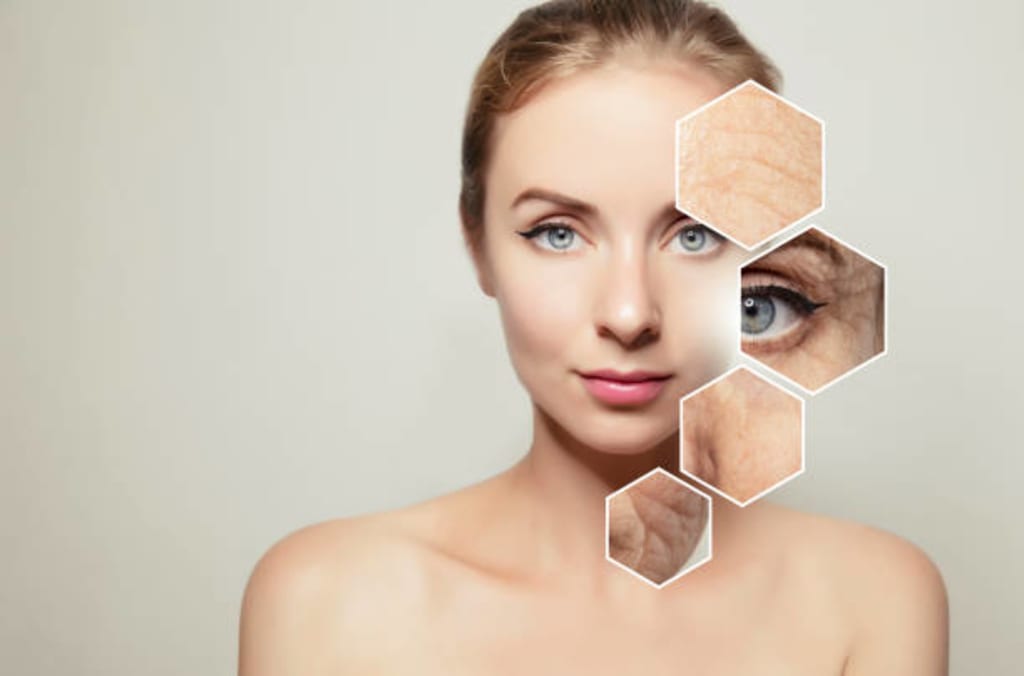The Pros & Cons of Invasive vs Non-Invasive Anti-Aging Treatments
best anti-aging treatment for your face and skincare needs

The quest for a youthful appearance is as old as time itself. Today, we have a wide array of anti-aging treatments at our disposal, ranging from non-invasive options like creams and serums, to more invasive procedures like surgery. But how does one choose the best anti-aging treatment for the face? The answer lies in understanding the pros and cons of both invasive and non-invasive treatments.
Invasive Anti-Aging Treatments: Going Under the Knife
Invasive anti-aging treatments for the face involve procedures that require incisions or injections into the skin. These are usually performed by a qualified professional and can yield dramatic results. However, they also come with certain risks and drawbacks.
Pros of Invasive Anti-Aging Treatments
Dramatic results: Invasive treatments can provide significant improvements in skin texture, tone, and firmness, reducing the appearance of deep wrinkles and sagging skin.
Long-lasting effects: The results of invasive procedures tend to last longer compared to non-invasive treatments.
Targeted treatment: These treatments can address specific problem areas, providing customised solutions.
One-time procedure: Many invasive treatments are a one-time procedure, unlike non-invasive options that may require multiple sessions.
Proven efficacy: Most invasive procedures have undergone rigorous clinical testing, ensuring their efficacy.
Advanced technology: Invasive treatments often utilise the latest technology, providing cutting-edge solutions for skin ageing.
Cons of Invasive Anti-Aging Treatments
Risk of complications: All surgical procedures carry risks, such as infection, scarring, or adverse reactions to anaesthesia.
Downtime: Invasive treatments usually require recovery time, which can range from a few days to several weeks.
Cost: These treatments are typically more expensive than non-invasive options.
Discomfort or pain: Depending on the procedure, some discomfort, pain, or bruising might be experienced during the recovery period.
Non-natural results: In some cases, invasive treatments might result in an unnatural appearance if not performed expertly.
Variable results: Despite the advanced technology, results can vary based on individual healing processes and responses to surgery.
Non-Invasive Anti-Aging Treatments: Skin Rejuvenation Without the Surgery
Pros of Non-Invasive Anti-Aging Treatments
Lower risk: These treatments usually pose fewer risks compared to invasive procedures.
No downtime: Most non-invasive treatments require no recovery time. One can usually resume normal activities immediately after treatment.
Affordability: Non-invasive treatments are typically more affordable than invasive options.
Versatility: Many non-invasive treatments can be combined with other skincare practices or procedures for enhanced results.
Progressive results: With continuous usage, results often improve over time, offering a gradual and more natural transformation.
Personalised regimen: Non-invasive options offer the ability to adjust the treatment plan based on your skin's reaction over time.
Cons of Non-Invasive Anti-Aging Treatments
Less dramatic results: Non-invasive treatments may not deliver as drastic results compared to invasive procedures.
Repeated treatments: To maintain the results, repeated treatments are often required.
Time: Some treatments may take longer to show results.
Temporary results: Many non-invasive treatments offer temporary results, and the aging process will continue naturally.
Sensitivity or allergic reactions: While generally safe, some individuals might experience skin sensitivity or allergic reactions to certain products or treatments.
Inconsistent results: Depending on the product or device used, results can be inconsistent and vary from person to person.
FAQs
1. Which is the best anti-aging treatment for the face?
The best treatment depends on your individual skin type, condition, and goals. Consultation with a professional can help you make an informed decision.
2. Are invasive treatments better than non-invasive ones?
Not necessarily. While invasive treatments can provide more dramatic results, they also carry higher risks and require more downtime.
3. Are non-invasive anti-aging treatments safe?
Generally, non-invasive treatments are considered safe. However, it's crucial to have any procedure performed by a certified professional.
4. How can I prolong the results of my anti-aging treatment?
Proper skincare, including sun protection, regular moisturising, and a healthy lifestyle can help maintain the results.
5. Can anti-aging treatments completely erase wrinkles?
While treatments can significantly reduce the appearance of wrinkles, it's challenging to completely erase them. Aging is a natural process that can't be completely reversed.
6. Are there any natural anti-aging treatments?
Yes, practices like maintaining a healthy diet, regular exercise, proper hydration, and good sleep habits can help slow the aging process.
7. When should I start anti-aging treatments?
There's no set age, but many skincare professionals recommend starting in your mid-20s to early 30s, before significant signs of aging appear.
8. Can men undergo anti-aging treatments?
Absolutely! Both men and women can benefit from anti-aging treatments.
9. Are there any side effects to non-invasive anti-aging treatments?
Some treatments may have side effects such as temporary redness, swelling, or sensitivity.
10. Can I combine invasive and non-invasive treatments?
Yes, many people opt for a combination approach to address different concerns. Always consult a professional to design the most effective treatment plan for you.
Selecting the best anti-aging treatment for the face isn't a universal decision; it is deeply personal and nuanced, reflecting individual needs and conditions. The concept of 'one-size-fits-all' doesn't apply here. This is because every individual's skin is unique, with its own characteristics, concerns, and reactions to treatments. As a result, what works for one person may not work as effectively for another.
To start, understanding your skin type is crucial. Dry, oily, combination, or sensitive skin each has its own set of needs. The ideal anti-aging treatment will be one that not only combats signs of ageing but also caters to the unique requirements of your skin type. For instance, someone with dry skin might benefit more from a treatment that combines anti-aging elements with hydrating components, while someone with oily skin might need a non-greasy formula that also addresses ageing concerns.
Budget is an unavoidable aspect of the decision-making process. While we all aspire to age gracefully, how much we're willing or able to spend on this pursuit varies. Invasive procedures usually come with a hefty price tag compared to non-invasive options. By understanding the costs involved, you can choose a treatment that fits within your financial comfort zone.
Lastly, gaining a thorough understanding of the pros and cons of both invasive and non-invasive treatments is indispensable. This knowledge can guide your decision, helping you weigh the potential benefits against the risks, recovery time, and financial investment.
In conclusion, choosing the right anti-aging treatment isn't a decision to be taken lightly or made impulsively. It demands careful consideration and understanding of various factors, such as your skin type, age, lifestyle, and budget. Consulting with a professional, such as a dermatologist or a skincare expert at a skin clinic, can also provide valuable insights tailored to your specific needs. By arming yourself with the right knowledge and guidance, you can make an informed decision that will offer the most beneficial results for your skin.





Comments
There are no comments for this story
Be the first to respond and start the conversation.